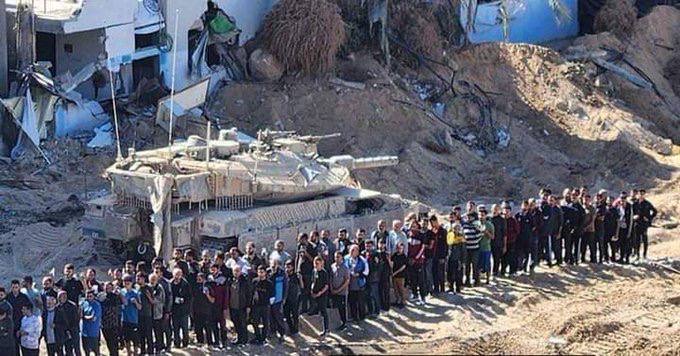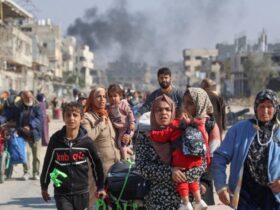A new Israeli bill, approved by the Knesset, to end UNRWA’s presence in the occupied West Bank, including East Jerusalem and Gaza, has sparked outrage among Palestinians and international observers alike.
According to a statement released by the Embassy of the State of Palestine, the bill’s passage will cut off critical aid, services, and education for millions of Palestinian refugees, including nearly 650,000 students in Gaza alone, UNRWA officials warn. The agency currently serves nearly six million Palestinian refugees across the region, employing 30,000 Palestinians.
The decision coincides with escalating violence and devastation in Gaza, where casualties have surged amid ongoing airstrikes, blockades, and lack of humanitarian access.
The Palestinian Health Ministry reports the death toll has reached 43,163 with 101,510 wounded, as the northern Gaza Strip remains cut off for the 24th consecutive day, leaving tens of thousands without access to food, water, or medical assistance.
The United Nations Office for the Coordination of Humanitarian Affairs (OCHA) estimates over 60,000 people have been displaced in northern Gaza in October alone, with neighborhoods and essential infrastructure destroyed.
Children remain particularly vulnerable in this worsening crisis. UNICEF estimates that 19,000 children have been separated from their families and face a dire lack of support. The pace of medical evacuations has slowed dramatically, with fewer than one child a day transferred out for urgent care—a rate that would take over seven years to address the needs of the 2,500 children requiring immediate medical attention.
Meanwhile, arrests and detentions in the West Bank, including East Jerusalem, continue to escalate. Authorities report over 11,500 detained Palestinians, including 750 children, 430 women, and 132 journalists, many under administrative detention without trial. In Gaza, at least 232 UNRWA staff members have been killed, and over 200 of its facilities have been damaged or destroyed in the attacks.
Amid these developments, a recent survey by the Israel Democracy Institute reveals that only 6% of Israelis believe the Gaza war should be halted due to the “great cost in human life.” For Palestinians, however, the ongoing devastation has reinforced their sense of abandonment. “On the one-year anniversary of the October 7 attack, the international community’s promise to ‘leave no one behind’ rings hollow for Palestinians,” said Abdullah M. Abu Shawesh, Ambassador of the Embassy of the State of Palestine.














